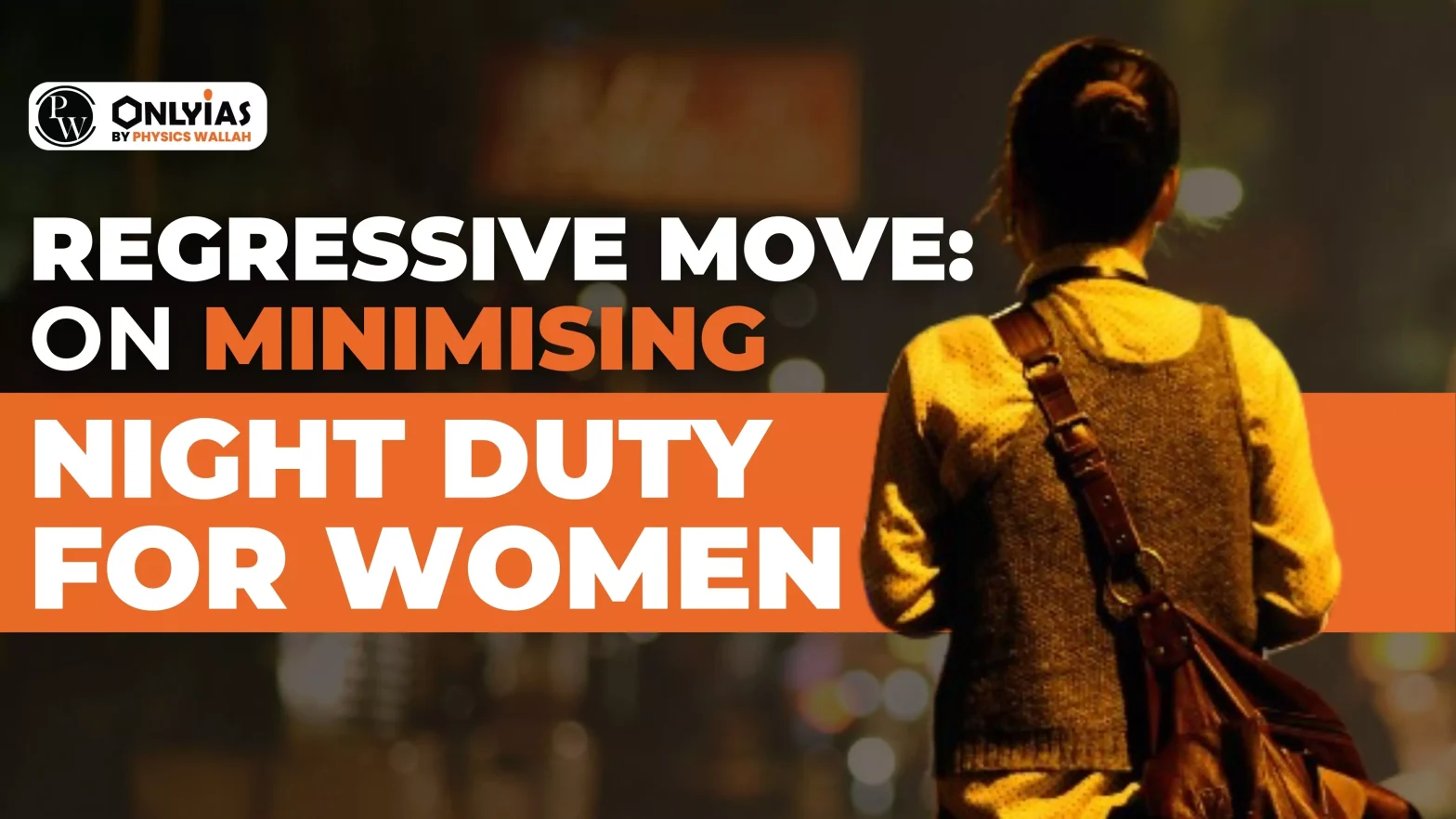The tragic murder of a woman doctor on duty at Kolkata’s R.G. Kar Hospital on August 9 prompted the West Bengal government to issue a new guideline minimising night duty for women. While this move aims to enhance safety, it raises concerns about its effectiveness and its impact on gender equality in the workforce.
What could be the Potential Impact of the move?
- Low Participation: India’s urban women (aged 15+) have a labour force participation rate of just 25.2% as of April-June 2024 (PLFS data).
- Government Directive: The government’s directive to minimise night shifts for women could worsen the situation.
- Reduced Opportunities: This policy may push women out of the workforce, limiting employment opportunities.
- Financial Impact: Restricting night shifts could reduce women’s financial independence.
- Unintended Consequence: The focus on restricting work hours might lead to job losses rather than improving workplace safety.
Enroll now for UPSC Online Classes
What Can Be Done?
- Rattirer Shaathi Program: A programme by West Bengal Government highlights crucial safety measures like separate restrooms, CCTVs, and a special mobile app—essential but overdue steps.
- Enhanced Security: Install CCTVs, ensure well-lit safe zones, and provide emergency response systems.
- Improved Infrastructure: Create separate restrooms and safe facilities for women.
- Robust Protocols: Develop comprehensive safety protocols for all sectors, including informal sectors.
- Mandatory Implementation: These measures should be mandatory and effectively enforced instead of restricting women’s work opportunities, which could harm employment.
Are Laws Enough to Prevent Rape?
- NO: Laws alone are insufficient to prevent sexual violence.
- NCRB Report 2022: 4.45 lakh crimes against women were registered, nearly 51 FIRs every hour.
- Need for Societal Change: Legal frameworks must be supported by societal changes, awareness, and effective enforcement.
- Chief Justice’s Emphasis: Protocols must be actively enforced, not just remain on paper.
Recommendations
- Strengthen Safety Protocols: Implement and rigorously enforce comprehensive safety measures across all sectors.
- Promote Gender Equality: Develop policies supporting women’s workforce participation while addressing safety without discrimination.
- Enhance Awareness and Education: Promote societal change through awareness programs focused on gender justice and violence prevention.
Check Out UPSC NCERT Textbooks From PW Store
Conclusion
The government’s decision to reduce night shifts for women may worsen their economic marginalisation instead of tackling workplace violence. Initiatives like Kolkata’s Reclaim the Night march highlight the need for genuine support for women’s rights. There’s a strong call for safety measures that protect women without limiting their job opportunities. To truly make a difference, both the government and society must prioritise strong safety protocols and ensure women can work safely and equally at all times.
To get PDF version, Please click on "Print PDF" button.

